
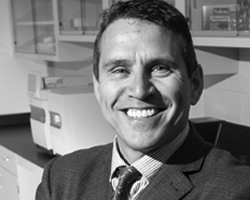
As program head for the BioScience Technology program at Saskatchewan Polytechnic, Mr. Chartrand trains technologists to work in the biosciences. Applied research is an important part of the BioScience Technology program and provides an excellent opportunity to enhance students' skills. As a researcher, he works with industry partners in key areas of the bioscience industry cluster including ag biotech, bioproducts, biomedicine and the environment. Working with industrial partners in applied research enables the program to remain current with industry trends and to develop new technologies for future projects. Mr. Chartrand's current instructor role is in the area of molecular biology with a focus on synthetic biology and its uses in biotechnology.

Dr. Elizabeth Edwards is internationally known for her work on anaerobic bioremediation, the application of molecular biology and metagenomics to uncover novel microbial processes, and the transition of laboratory research into commercial practice to develop bioremediation and bioaugmentation strategies for groundwater pollutants. The successful start-up SiREM Laboratories was founded in Guelph in 2002 to market technology from the Edwards lab. She has led successful large-scale collaborative research partnerships with industry as a way to foster faster knowledge and technology transfer.
She has received several prestigious awards including an NSERC Synergy Award for Innovation with Geosyntec Consultants (2009), a Killam Research Fellowship (2008), a Premier's Research Excellence Award (2003), and an NSERC Women's Faculty Award (1995). She is a fellow of the AAAS (2011), and was inducted into the Canadian Academy of Engineering (2011) and the Royal Society of Canada (2012).
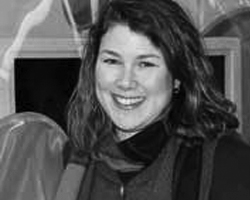
Dr. Lisa Gieg is an associate professor in Biological Sciences at the University of Calgary. Her research in the field of environmental microbiology focuses on the beneficial and detrimental impacts of microorganisms in the oil and gas industry. As such, Dr. Gieg studies the aerobic and anaerobic biodegradation of hydrocarbons and related chemicals in contaminated aquifers, oil sands tailings ponds and fossil energy reservoirs. Her work has application to the fields of petroleum bioremediation, microbial enhanced oil recovery (MEOR) and microbial influenced corrosion (MIC).
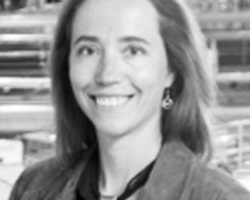
Dr. Joyce McBeth is an assistant professor in Geological Sciences at the University of Saskatchewan. Her research group studies microbial communities and their influence on metal(loid) solubility and mineralogy in hydrocarbon contaminated environments, mine ore and tailings, and water treatment systems.
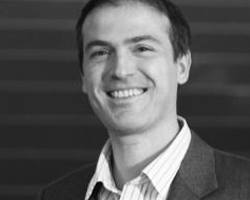
Dr. Paolo Mussone holds the Applied Bio/Nanotechnology Industrial Research chair at the Northern Alberta Institute of Technology (NAIT). Working closely with industry partners in the resource extraction, environmental remediation and bioeconomy sectors, and in collaboration with other post-secondary institutions and research centres across Alberta, Dr. Mussone is focused on developing and prototyping marketable technology using emerging nano- and biotechnologies. This applied research, in partnership with NAIT's Centre for Sensors and System Integration, and the Center for Oil Sands Sustainability, is focused on supporting the regional energy sector with the goal of improving operational efficiencies, reducing emissions and accelerating environmental remediation.

Dr. Derek Peak is a professor of Environmental Soil Chemistry at the University of Saskatchewan, where he uses a wide range of laboratory and molecular-scale techniques to probe soil chemical processes. Dr. Peak has been a synchrotron user for 20 years and has served as a member and chair of the Canadian Light Source Users Advisory Committee. His overall research program focuses on using synchrotron-based chemical speciation techniques to determine nutrient and contaminant fate. Major research themes include understanding the fate and transport processes that control phosphate availability in soils, developing sustainable agricultural development in West Africa, and effectively managing metal and metalloid affected soils produced as a result of natural resource extraction.

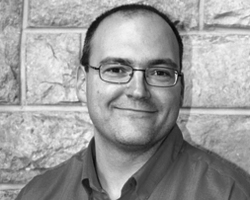
Dr. Steven D. Siciliano is the NSERC/Co-op Industrial Research Chair in In Situ Remediation and Risk Assessment. He is also a professor of soil toxicology at the University of Saskatchewan and Director of the NSERC CREATE Program in Human and Ecological Risk Assessment, which is an advanced risk assessment-training program for PhD students. He is a soil toxicologist with 20 years of research and industrial experience in remediation and risk assessment of contaminated soils. For the past decade, he has led multi-disciplinary research teams investigating how soils poison humans and how humans poison soil, with a focus on how risks associated with contaminated soil sites can be reduced. In 2006 and then in 2011, Dr. Siciliano was awarded an NSERC Discovery Accelerator Award which recognizes outstanding Canadian researchers with a potential for world-class breakthroughs. Dr. Siciliano has published over 144 peer-reviewed book chapters and articles dealing with polluted soils; these contributions have been cited by other researchers over 4,900 times.

Dr. Katherine Stewart is an assistant professor in the Department of Soil Science at the University of Saskatchewan and an adjunct at the Yukon Research Centre, Yukon College and the University of Northern British Columbia. As an expert in northern plant ecology and soil science, Dr. Stewart conducts research investigating the restoration of plant communities and nutrient cycling processes in northern ecosystems to identify means of restoring sustainable pathways that promote long-term ecosystem health. Dr. Stewart works with several industrial partners in northern Canada to develop soil amendments and identify biological soil crust and plant species that promote hydrocarbon degradation and reduce bioavailability of heavy metals in arctic and boreal soils.

Dr. Ania C. Ulrich is an associate professor in the Department of Civil and Environmental Engineering at the University of Alberta. She has been conducting research on environmental site assessment, remediation and microbial community characterization relevant to hydrocarbon biodegradation since 2000, with expertise in oil sands tailings issues since 2005. Dr. Ulrich has combined her technical work with community engagement practices to help with successful implementation of these techniques in small communities and First Nations.